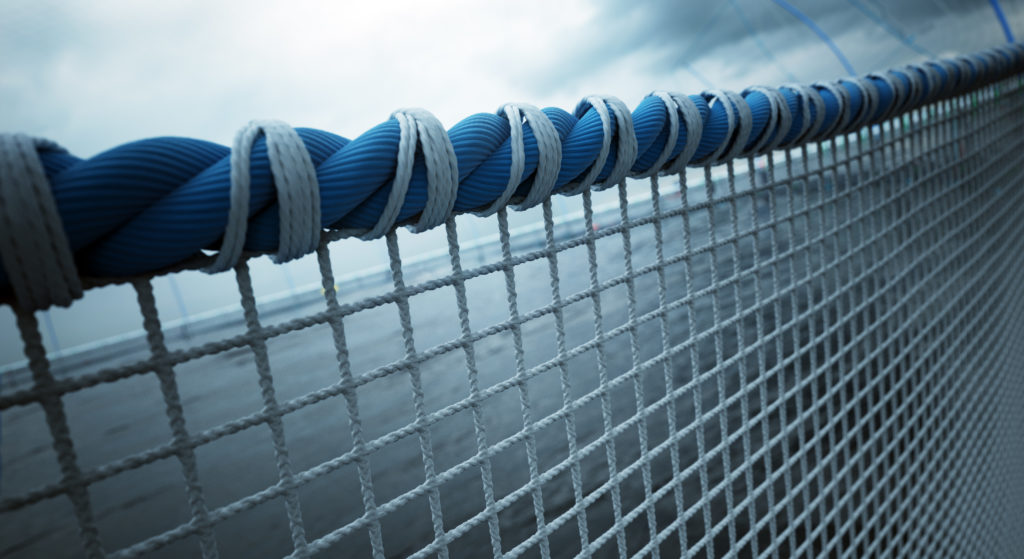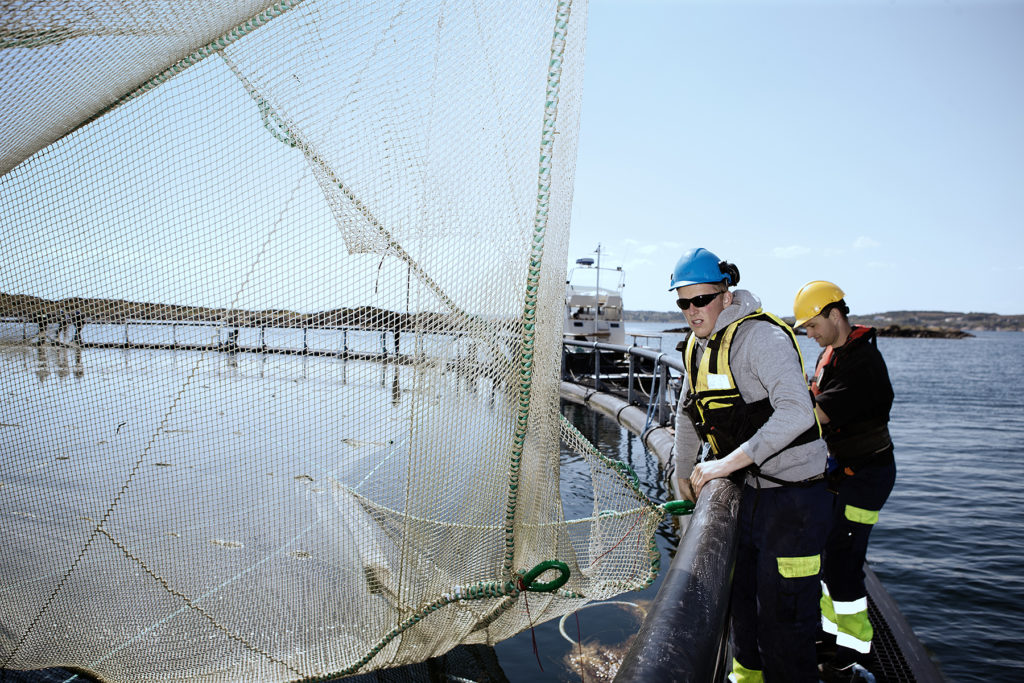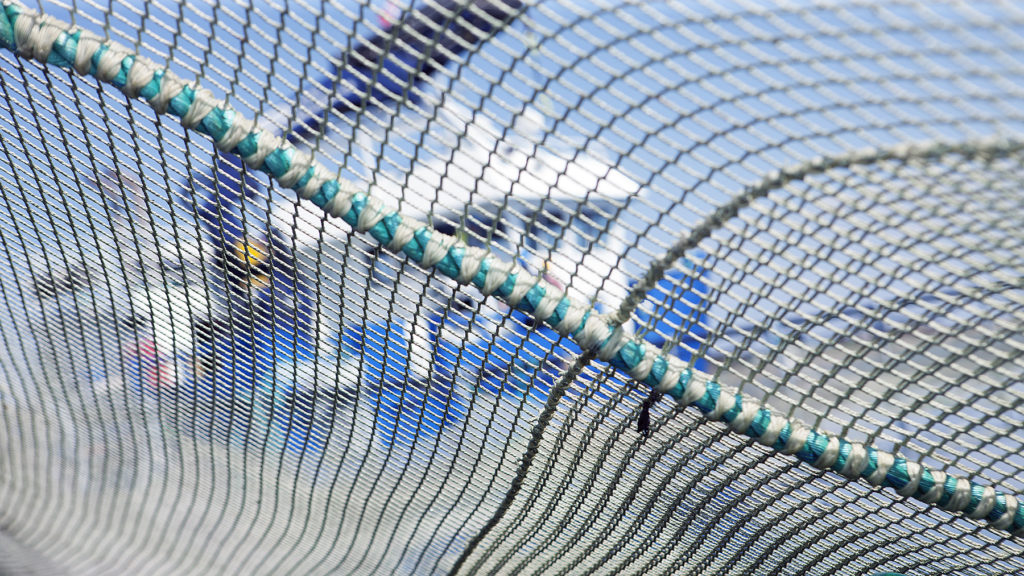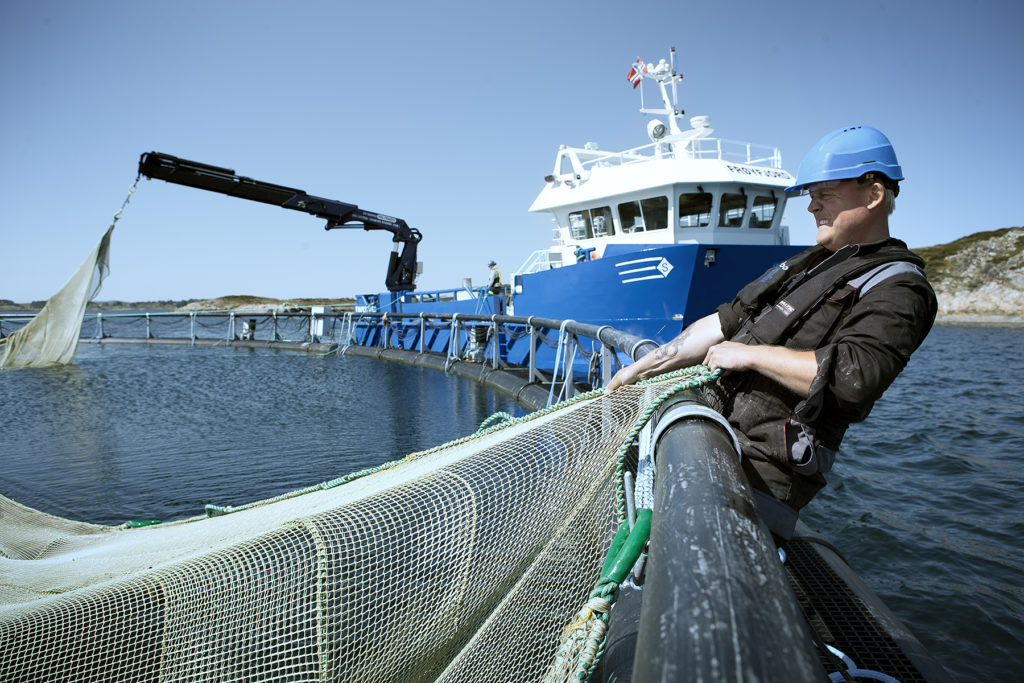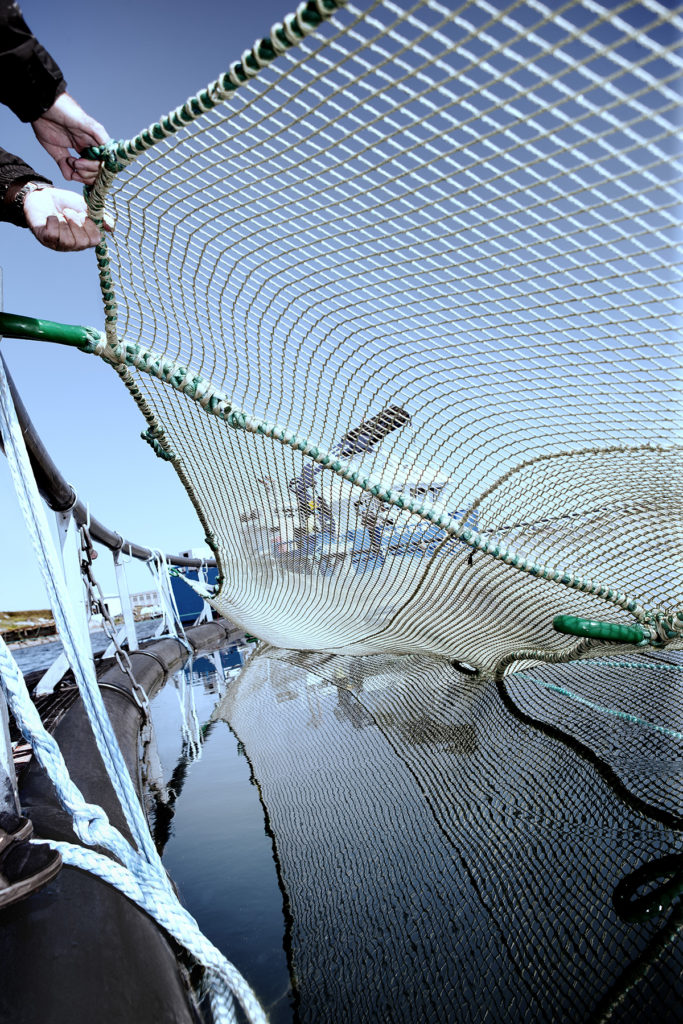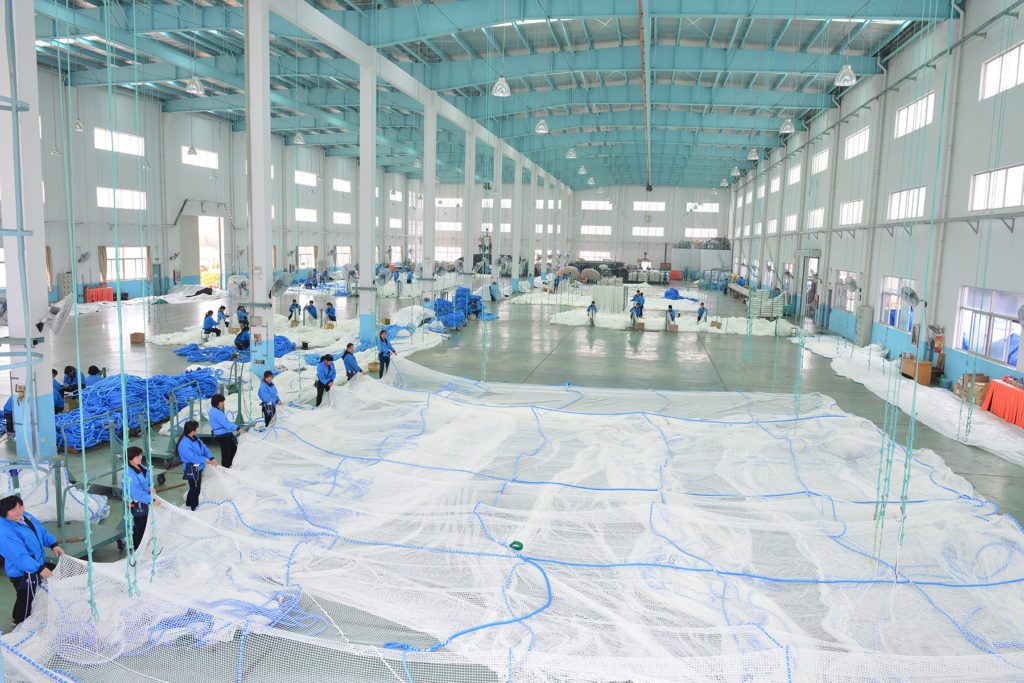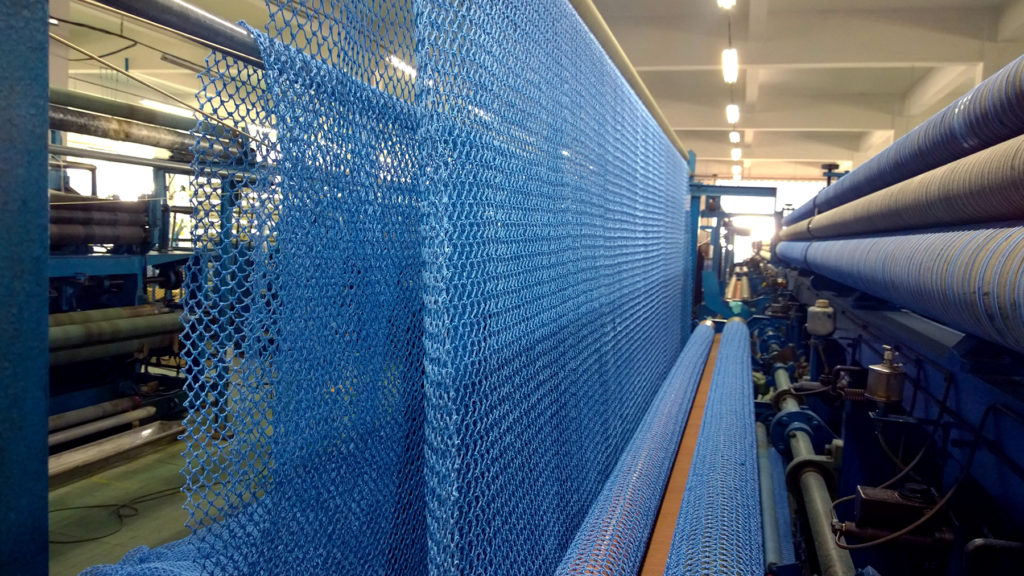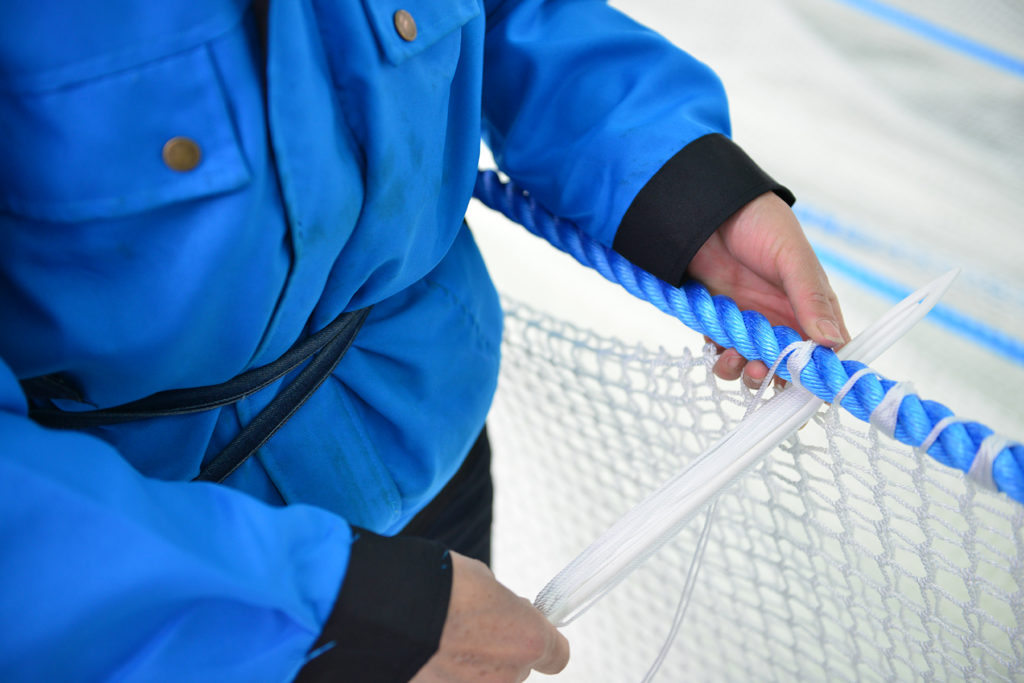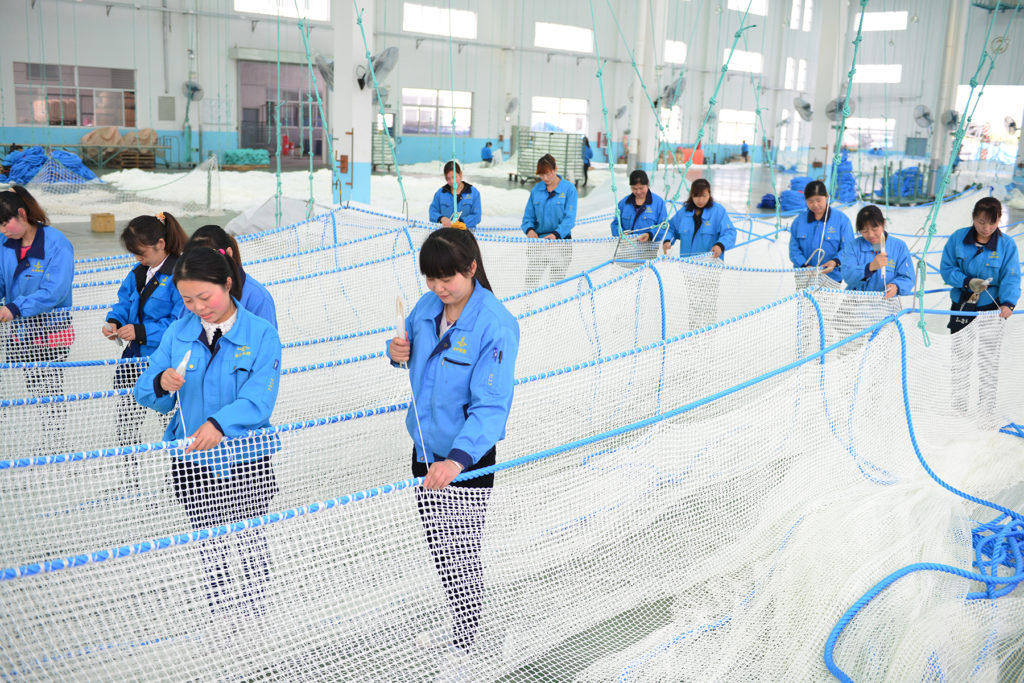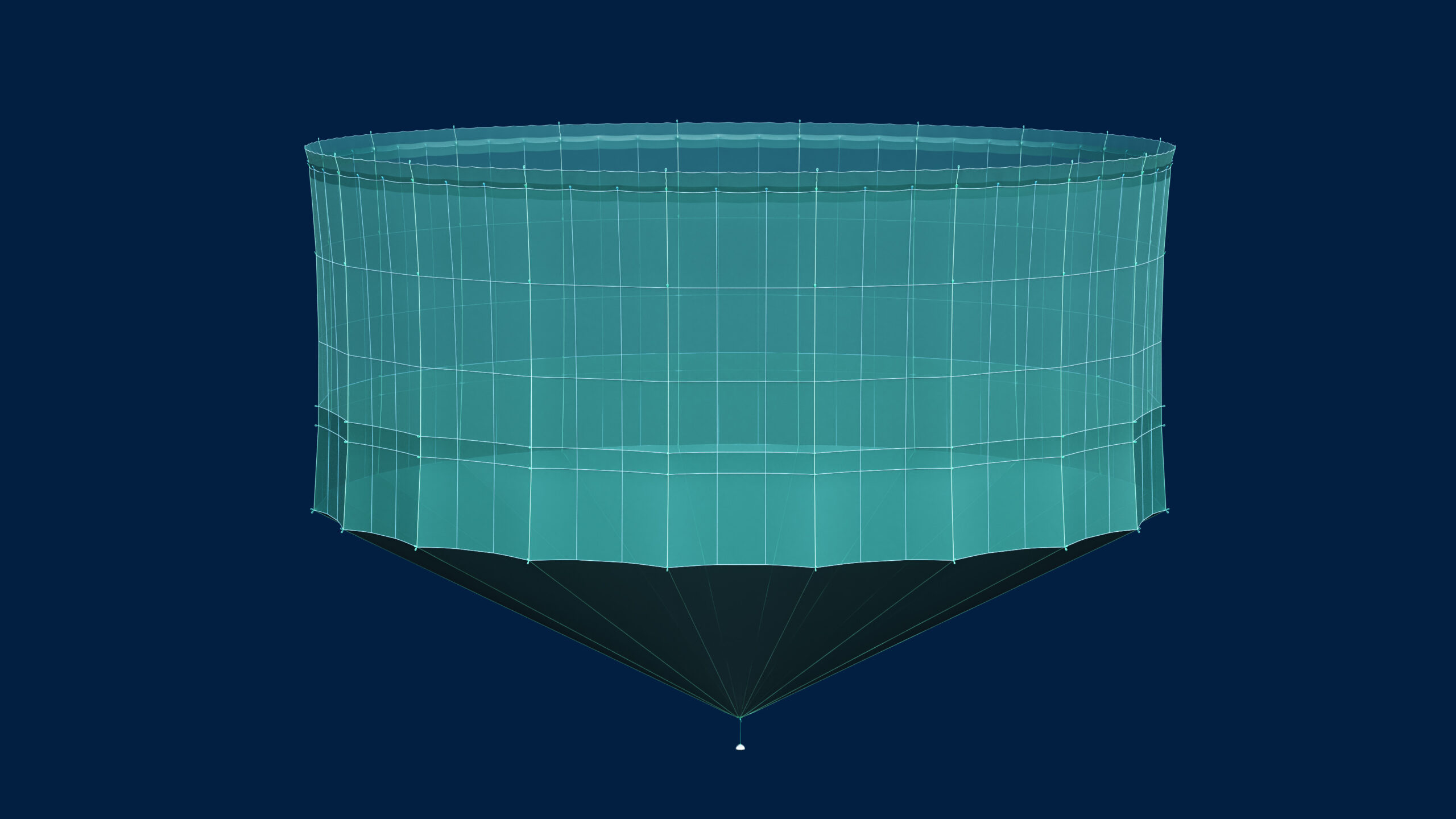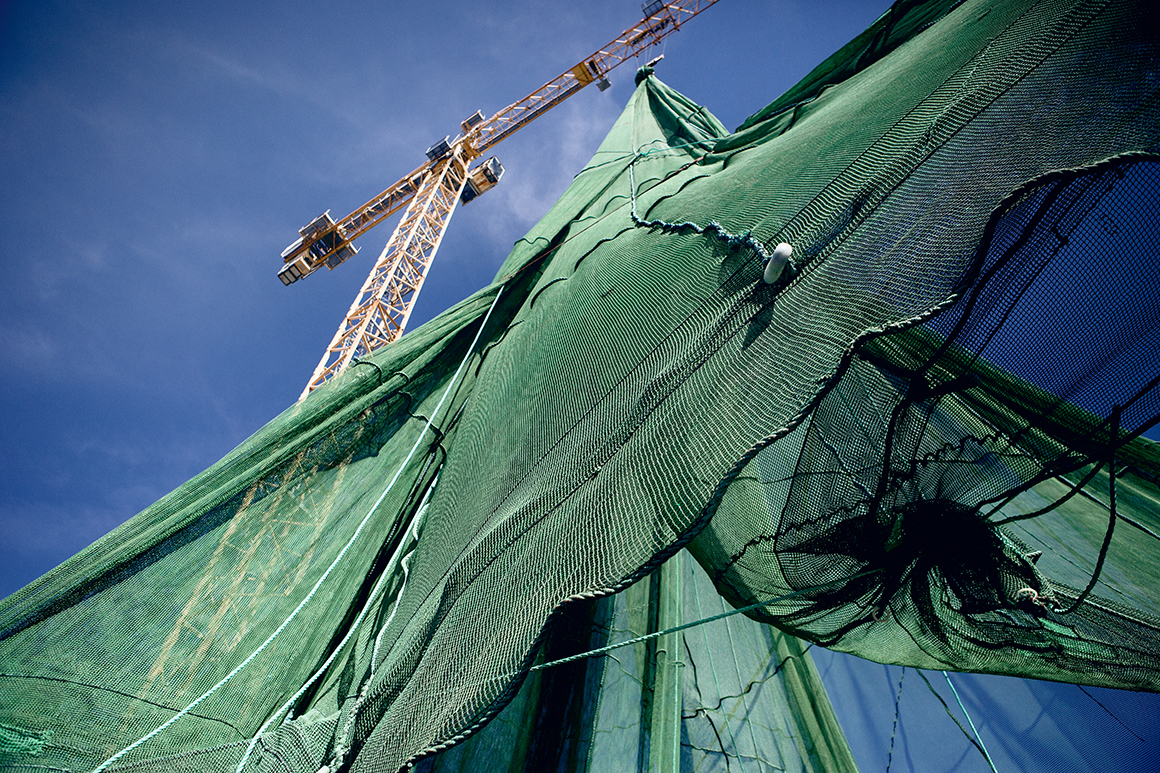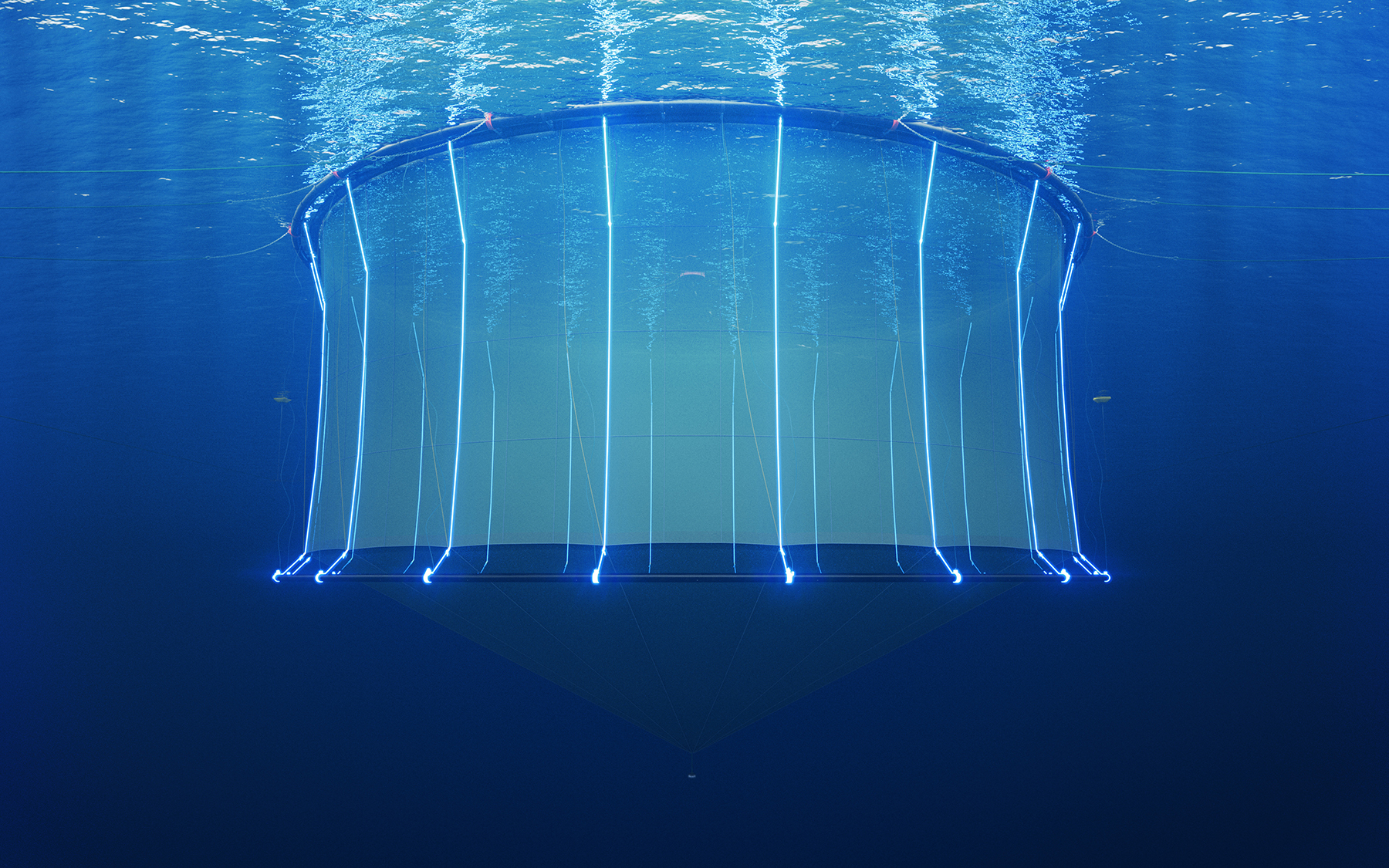Nylon
- The most commonly used material for bag nets in aquaculture
- Cost-effective
- Easy to work with and repair
- Treated with either antifouling or coating in order to reduce fouling and ensure more straightforward maintenance/rinsing
- Supplied both as a nodal line and non-nodal
- Considered the ‘standard netting’ in Norway and used by most customers at present
Polyester
- A good deal heavier than nylon
- Good against UV
- Good form stability
- Less shrinkage than nylon
- Treated with either antifouling or coating in order to reduce fouling and ensure more straightforward maintenance/rinsing
- Supplied both as a nodal line and non-nodal
- Resistant to wear
HDPE
HDPE have been tested under extreme stresses and demonstrates excellent properties in terms of fracture strength and wear. Third-party tests document the superior strength of HDPE.
- Extremely durable
- Withstands high frequency of washing
- Environmentally friendly – no antifouling
- Long service life and low service costs
- Reduced escape risk
- Designed to ensure better sinkability
- Better water flow than traditional nets, which provides a better environment in the note
- Less deformation and inflation of the netting
UHMWPE
Stronger netting, which has very good properties with regard to breaking strength and wear. It has undergone rigorous testing, withstanding high-stress conditions and repeated net cleaning, surpassing traditional netting in both wear resistance and breaking strength. Improved water flow provides a better environment for the fish.
- Extremely durable
- Withstands high frequency of washing
- Environmentally friendly – no antifouling
- Long service life and low service costs
- Reduced escape risk
- Designed to ensure better sinkability
- Better water flow than traditional nets, which provides a better environment in the note
- Less deformation and inflation of the netting
